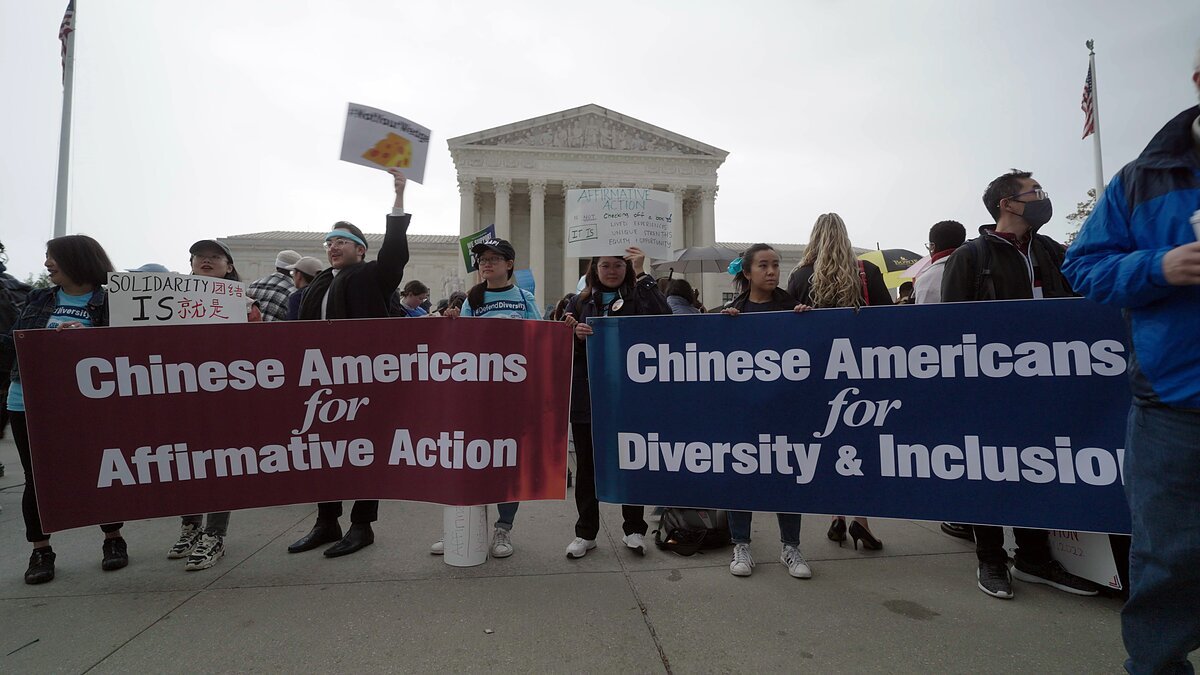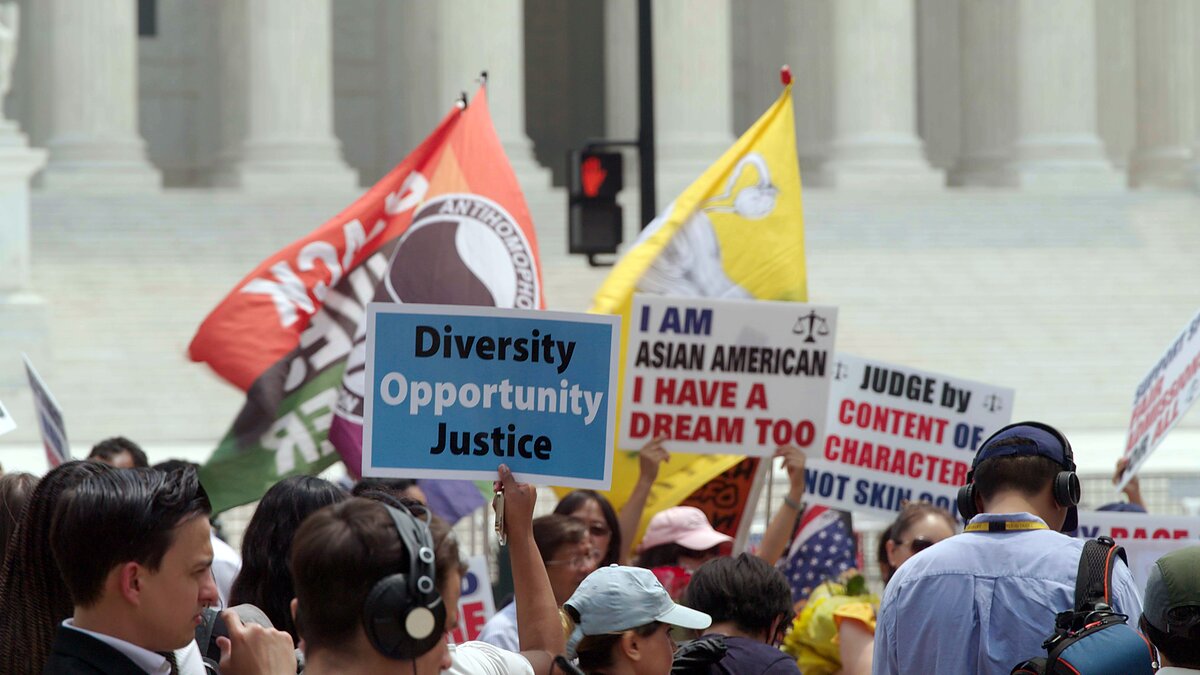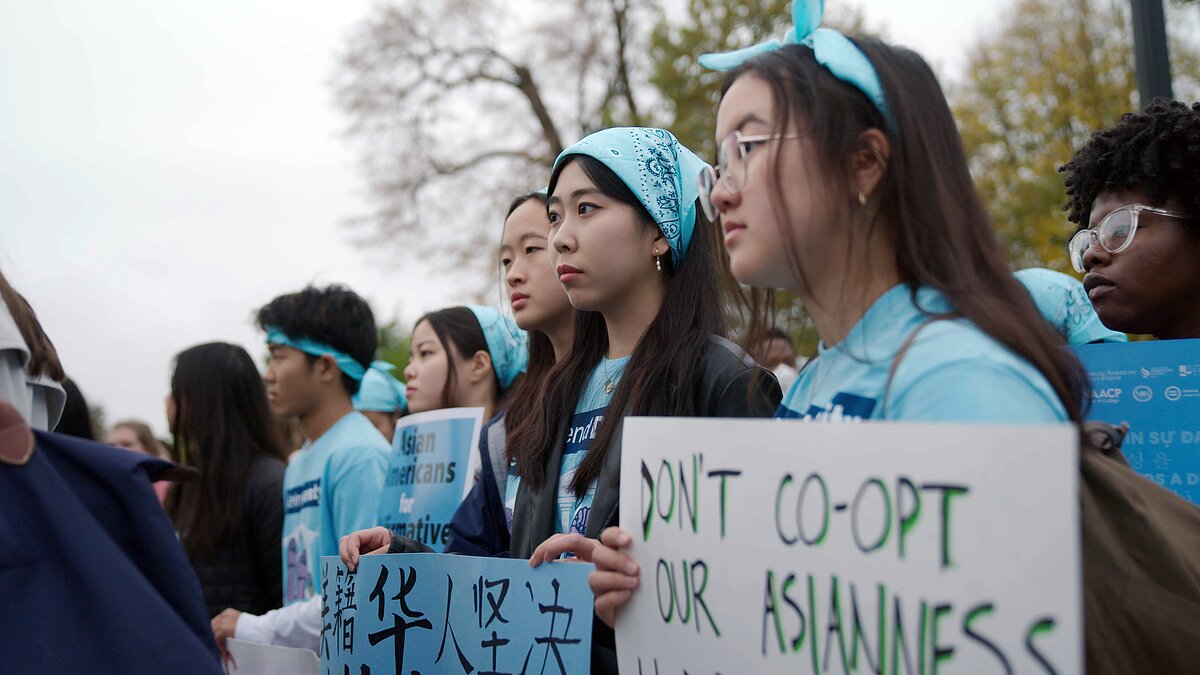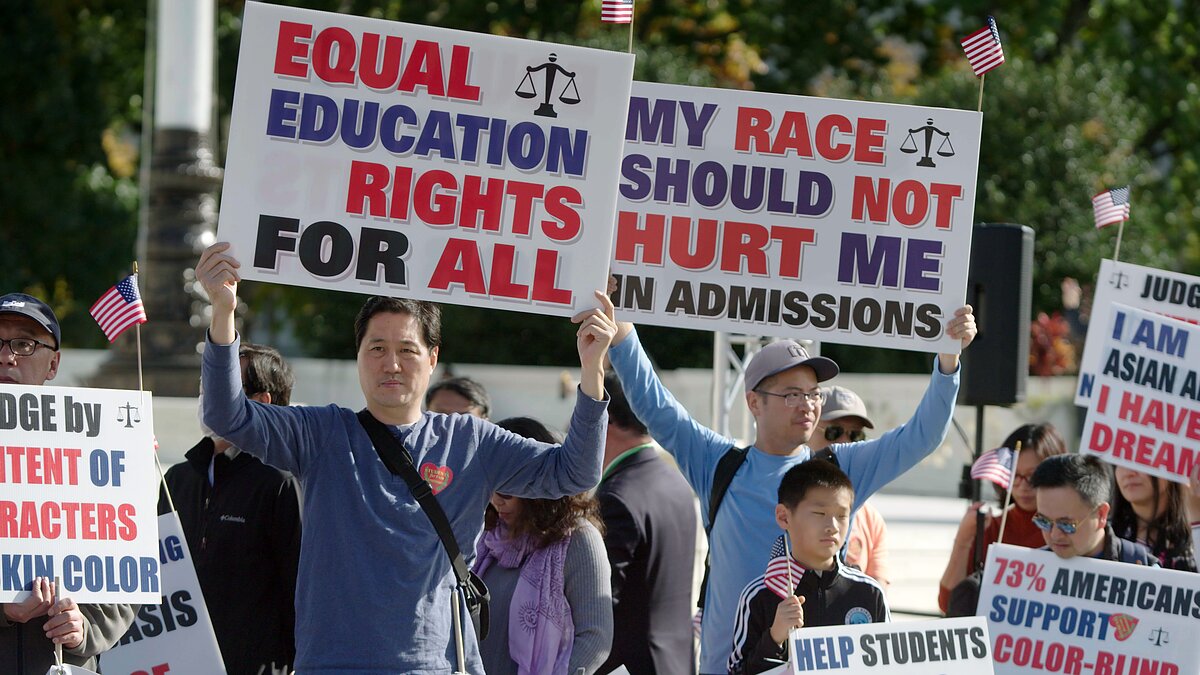“Admissions Granted” Revisits the Overturning of Affirmative Action
It is curious that affirmative action has not inspired more works of documentary. This could be owed to the simple fact that, unlike other civil rights issues (e.g. abortion and voting rights), affirmative action lacks clear and ready visual symbols. Another possible explanation is that diversity, the chief rationale in the Supreme Court’s defense of affirmative action, has been an ostensibly uncontroversial value in contemporary American society.
That assumption was dramatically upended on June 29, 2023, when the Supreme Court overturned affirmative action in higher education on behalf of Asian American plaintiffs in Students for Fair Admissions (SFFA) v. Harvard.
Admissions Granted, a new documentary co-directed by Miao Wang and Hao Wu, follows the development of the case over the past decade and reveals how the arguments upholding such a cornerstone of equity in America have worn thin. While the film is a holistic, nuanced account of an era-defining court case, there’s little new information for those who followed it closely over the years. Still, the variety of arguments the film presents make it an intellectually stimulating watch and an important and engaging historical document.
President Kennedy first applied the term “affirmative action” in the context of race in 1961 to eliminate discrimination in assigning government contracts. In the ensuing decades, affirmative action has been used to further protections for racial minorities—including Asian Americans—and women in schools and workplaces. The original intention of affirmative action in college admissions was to remediate centuries of violence and exclusion that continue to affect marginalised communities.
When the Supreme Court ruled on the case of California vs. Bakke in 1978, it was decided that the use of quotas for racial minorities was unconstitutional. Racial consideration, however, was still justifiable on the grounds that it promotes campus diversity—a valuable aspect in the educational experience.
What the film suggests is how the increasingly singular emphasis on the diversity rationale, in many ways, paved the way for the demise of race-conscious college admissions.
Narratively driven by the development of the Students for Fair Admissions v. Harvard case, Admissions Granted incorporates archival news footage and interviews to provide historical context to the unfolding events of the court case.
The film opens with a montage exploring the elite status Harvard University represents in American culture, past and present. Hyper-competent Asian Americans like plaintiffs Michael Wang and Calvin Yang want in. The stakes, as Howard University School of Law President Danielle Holley explains, are whether or not they will have access to money, resources, and political power. When Wang and Yang are denied admission, both blame affirmative action.
Within a breathless span of 90 minutes, we hear from the case’s principal players—trial and expert witnesses, a former Harvard president, and multiple Asian American student and organisational plaintiffs. The most consistent and eloquent voice, however, comes from Edward Blum, a stockbroker-turned-legal strategist and the chief orchestrator of the anti-affirmative action movement since the early 2000s.
After learning of a handful of disgruntled Asian American students rejected by Harvard, Blum established SFFA in 2014. This group of students—which included Wang and Yang—claimed that by abiding by affirmative action, Harvard’s admissions process put Asian Americans at a disadvantage.
It’s notable that the film gives Blum a significant amount of screen time. In one of its earlier scenes, the camera scans through Blum’s home as we hear him talk about his upbringing in a Jewish household post-WW2 and describe his life as a litigator. In a tender moment, we see Blum and his wife sit on their couch, and Blum thanks her for tolerating him all this time before sharing a laugh.
That image of a genial, articulate, level-headed, and loving man can be hard to square with the same man who thinks affirmative action is reverse racism, if not segregation itself. While Blum does acknowledge that there is racism in American society, he also says, without blinking, that America is not systemically racist because the 13th Amendment has fixed the flaws of the country’s foundational documents.
Trial witness Margaret M. Chin, a current sociology professor at Hunter College at CUNY offers an embodied rebuttal to Blum’s perspective. A member of Harvard’s class of 1984 and child of Chinese immigrants who grew up in New York City’s Chinatown, Chin said she was able to attend Harvard because the university recruiters visited her neighborhood and recruited her. Chin argues that to take away affirmative action is to bring back segregation—not the other way around.
Holley embraces the diversity argument, although she qualifies that it should not be viewed in separation from the original rationale of reparation. She also points out the distinction between de jure and de facto segregation. The latter is a vestige of the former and not immediately eradicable by the mere introduction of anti-apartheid laws. Within this context, Holley explains that affirmative action is crucial to creating equality because it takes steps to address past harms and bring everyone to the same playing field.
Admissions Granted has no heroes. While the members of SFFA seem arrogant and entitled, the pro-affirmative action camp appears disingenuous when they claim diversity is beneficial to everyone. If Blum is manipulative, the pro-affirmative action advocates are awkward in acknowledging that Asian students have been hurt yet struggle to communicate how that is not the fault of affirmative action.
Blum’s appropriation of the Civil Rights Movement’s strategies to reverse ends reflect many of the frustrations and limitations of today’s bipartisan politics; and similarly, the dizzying array of characters and arguments in the film challenge us to exercise our own criticality and ask ourselves what true equality for all looks like. Admissions Granted will air on Sunday, June 30 at 9 p.m. ET on MSNBC.
—Kathy Ou is a freelance community news reporter and film critic born in Southern China, bred in Southern California, and currently based in New York City.



